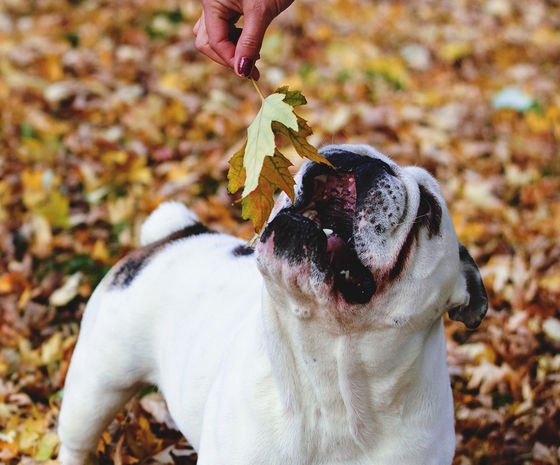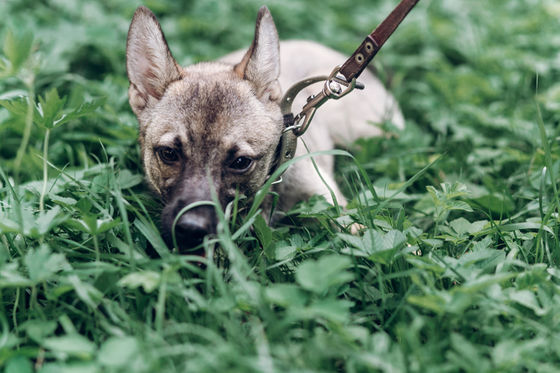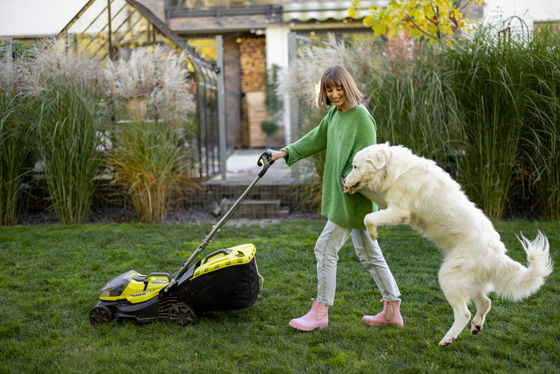``Dogs don't eat grass because their stomachs aren't feeling well,'' experts say, why do dogs want to eat grass?

Many people who have had a dog have encountered scenes where their dog on a walk begins to eat grass on the side of the road. Susan Hazel and Joshua Zoanetti of the University of Adelaide School of Veterinary Medicine, Australia, explained why dogs, which are based on meat eating, eat grass and what to be careful about.
Why does my dog eat grass?
It is a common behavior for dogs to eat grass, and in a study published in 2008, 80% of dog owners reported that their dogs regularly chewed the lawn. Also, a 2006 study of wolves living in Yellowstone National Park found grass-based plants in 74% of wolf excrement. In other words, it is highly likely that the habit of eating grass has been inherited from the time when wolves, the ancestors, lived in the wild.
It is sometimes explained that ``dogs eat grass when they have a bad stomach and want to vomit,'' but past research suggests that this is unlikely. For example, in a 2007 study in which 12 dogs were fed grass three times a day for six days, few dogs vomited.

by
All dogs in the study were healthy and free of gastrointestinal parasites. From this, ``The theory that dogs eat grass instead of emetics and deworming is denied, and for most dogs, eating grass is neither a problem nor an indication of disease,'' the paper said. author writes.
The study also found that dogs were more likely to eat grass when they hadn't eaten yet, meaning they were hungry, and less likely to eat grass when they were full. rice field.
I'm curious about why dogs, who basically live on meat, want to eat grass, but according to Hazel and others, 'Maybe it's simply because they like it.' Your dog may enjoy munching on grass when bored or idle, or grass may be his favorite food. Hazel and his colleagues also speculate that they may find it interesting to pluck grass from the ground, or may want to eat something different.

Although the aforementioned studies show that eating grass doesn't mean that your dog is unwell, there are a few things you should be aware of when feeding your dog grass. For example, if you chew on the lawn of your neighbor's house without permission, it may be a nuisance, and more importantly, the lawn in parks and squares may be sprayed with herbicide.
In particular, granular type pesticides and fertilizers that penetrate the soil take time, so you may need to wait 24 hours or more. Therefore, if you want to reduce the risk considering the health of your dog, you should consider weeding by hand.

Also, some plants are toxic to dogs, for example, oregano and bay leaves can cause vomiting and diarrhea if your dog eats them.
As long as you pay attention to these grasses and pesticides, there is no problem even if your dog eats grass, so Hazel et al. It doesn't need to be vomited, and it's okay if it vomits occasionally, but if the regurgitation is too severe or if it has diarrhea, it's a good idea to consult a veterinarian.'
Related Posts:
in Creature, Posted by log1l_ks







